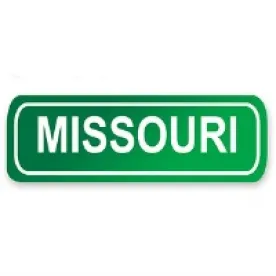Unemployment insurance laws rarely change. For years, Missouri’s unemployment insurance program has remained steady. So stable, in fact, that it flew under the radar. Most Missouri employers thought about it only when deciding whether to spend the time and money to protest a claim. This was how it was envisioned to work, until the COVID-19 pandemic forced Missouri employers to revisit the unemployment benefits system.
With the massive loss of business and the increase in unemployment claims, the COVID-19 pandemic has seemingly destabilized unemployment insurance programs nationwide. Over the past 4 weeks, more than 22 million workers have filed for unemployment benefits, according to the U.S. Department of Labor (DOL). The measures taken in the past month by the federal government, mostly through the Coronavirus Aid, Relief, and Economic Security (CARES) Act, are designed to temporarily restabilize these programs. The primary method of doing so is by reaching more unemployed people.
The CARES Act allows states to enter into agreements with the federal government that: eliminate the one-week waiting period for unemployment benefits; gives the unemployed and underemployed an additional $600 in weekly support through late July 2020; increases incentives for employers to use workshare programs; partially reimburses nonprofit and governmental employers that are part of the reimbursing plan; and expands who can receive unemployment benefits, as well as how much they receive and for how long. The programs that increase who can receive benefits, and the amount and duration of these benefits, are respectively entitled Federal Pandemic Unemployment Compensation (FPUC), Pandemic Unemployment Assistance (PUA), and Pandemic Emergency Unemployment Compensation (PEUC). (See our related article for more on the expansion of unemployment benefits under the CARES Act.)
Now, more than ever, Missouri employers and employees are asking questions about the state’s unemployment insurance program. With governors signing the required agreements through the CARES Act, these measures will go into effect throughout the country in every unemployment insurance program. Missouri employers and employees want to understand how their current program works, and, more importantly, how it will interact with the CARES Act.
The Unemployment Benefits System in Missouri: Subverting At-Will Employment
The basic gist of every unemployment insurance program is simple: it is an employer tax-driven social security program. Missouri’s program is no different. Employers pay taxes on a portion of their payroll to both the federal and state governments. In the state programs, those taxes go into a specific employer account. If an employee (former or current, but with reduced hours) applies and receives unemployment benefits, then those benefits come out of the employer’s account. The state tax rate is variable and based on an “experience rating,” which is calculated on how much money goes in and comes out of the employer’s account. If the employer’s rating is bad, then its tax rate increases. If the rating is good, its tax rate decreases. Employers want their experience rating to stay good and this can be accomplished by having fewer workers file or qualify for unemployment benefits.
The tax cannot be passed on to employees despite the fact that they are benefiting from it. Furthermore, employer accounts are charged as long as the unemployed worker made sufficient wages in the first four quarters of the last five, even if that employer was not the one that fired the worker. Suppose an employee worked for Company X all last year, but then the company had to lay off the worker. Company X can help the worker get another job at Company Y immediately so he or she does not collect unemployment benefits. Then, Company Y fires the worker during the next quarter, for no fault of the employee. As Company X was the employer that paid all the wages in the base period (and assuming it is enough paid in the base period), Company X—not Company Y—is the employer whose account is charged. That does not seem fair, and disincentivizes at-will employment on both sides.
Unemployed workers only receive unemployment benefits if they are unemployed through no fault of their own. But, when is a worker at fault for his or her unemployment? The Missouri Employment Security Law and the unemployment insurance program guide provided for employers by the Missouri Division of Employment Security lists several examples, including:
- a discharge due to misconduct;
- a quit without good cause attributable to the employer;
- the worker turns down suitable work without good cause;
- a quit to find more remunerative work;
- the worker was paid $400 or less by the employer across the base period of the claim;
- the worker quit temporary work in order to return to his or her regular employer;
- the worker retired;
- the worker worked for the employer on a part-time basis and continues to do so; and
- a quit to relocate with a military spouse.
Employers subject to the traditional tax scheme can use any of these reasons to protest an unemployment claim and protect their employer accounts from an unemployed worker who would otherwise receive the benefits.
Nonprofit and governmental employers operate under a different unemployment insurance scheme. Unlike for-profit employers, nonprofit and governmental employers reimburse unemployment insurance programs instead of paying into an account. Accordingly, they are not afforded the same opportunity to protect their accounts because they do not have a contributory account. Just as the system puts pressure on an employer to only terminate the employment relationship for good reason or just cause, so too does the system put pressure on the employee to not leave a job without some good reason or just cause attributable, in some way, to the employer. This is how the program disincentivizes at-will employment on both sides.
The CARES Act in Missouri
So how does the CARES Act affect the Missouri unemployment insurance program?
While the traditional unemployment insurance program is still in effect in Missouri, if the state wishes to remain part of the compact and receive additional federal funds, it must comply with the CARES Act and the DOL requirements for implementation.
The CARES Act changes who may be entitled to benefits and when they can receive them. Most importantly for Missouri employers, the changes are federally funded and specifically cannot be charged to employer accounts. No employer’s tax rate should increase as a result of unemployment benefits received through the CARES Act. However, employers’ tax rates may still change as a result of non-CARES Act traditional benefits.
Accordingly, it is important to understand what changes are taking place, so that employers know, for any given circumstance, whether their accounts will be charged. Employers can then analyze whether to protest an unemployment benefits claim. Additionally, knowing when an employer’s account will be charged can help in making sure it is not improperly charged.
The DOL’s Employment and Training Administration has issued four letters for guidance: one for each of the three new major programs and one summarizing the changes and how they should be coordinated by each state’s unemployment insurance programs. While we anticipate the DOL may issue additional guidance letters, the relevant ones to date include program letters 14-20, 15-20, 16-20, and 17-20.
As stated above, the new programs change who is eligible to receive unemployment benefits, as well as how much they can receive and for how long. With limited exception, FPUC (section 2104 of the CARES Act) adds a $600 benefit on top of any other benefits for any unemployed worker who receives benefits (even if reduced to $1). This benefit lasts 16 weeks or until July 31, 2020, whichever occurs first. It is also retroactive from when the worker became unemployed or when Missouri signed the agreement (March 28, 2020), whichever happened last.
PEUC (section 2107 of the CARES Act) is a federal extended benefits program that provides an additional 13 weeks of benefits to individuals who have exhausted regular unemployment compensation under state or federal law; have no rights to regular unemployment compensation under any other state or federal law; are not receiving compensation under the unemployment compensation laws of Canada; and “are able to work, available for work, and actively seeking work.” However, states must offer flexibility in satisfying the “actively seeking work” requirement if individuals are “unable to search for work because of COVID-19, including because of illness, quarantine, or movement restriction.”
Finally, PUA (section 2102 of the CARES Act) gives unemployment benefits for up to 39 weeks to individuals who are out of work due to COVID-19 and are otherwise ineligible for benefits through the traditional Missouri unemployment insurance program and PEUC (either because they don’t qualify or because they have exhausted those benefits). PUA also requires that the individual be “otherwise able to work and available for work,” while requiring states to offer flexibility if individuals are unable to search for work for the reasons stated above. The PUA and PEUC programs only run until December 31, 2020.
Because all three of these programs are 100 percent federally funded, no for-profit employer accounts should be charged when an unemployed worker uses them. It is currently unclear whether the accounts of employers (such as governmental entities or nonprofits) that have elected to be reimbursable employers instead of contributing employers under Missouri’s unemployment benefits program will be charged for these programs. Section 2103 of the CARES Act, which contains provisions for emergency unemployment relief for governmental entities and nonprofit organizations, provides for what appears to be different relief for these types of employers.
Importantly, Missouri has gone some distance toward implementing the requirements of these programs. The state has submitted estimated program effective dates (FPUC—April 12, 2020; PUA—April 19, 2020; and PEUC—April 25, 2020) and will apply them retroactively. The Missouri Department of Labor and Industrial Relations (MDLIR) has not yet addressed the federal waiting week program, reimbursable employer program, or whether contributory employer accounts will be charged. However, pursuant to authority granted by executive order, the MDLIR has declared it is temporarily waiving any charges to contributory employers for unemployment benefits paid out to claimants because of a loss of work due to COVID-19. Neither FPUC nor PEUC require that an individual be out of work due to COVID-19. While this is one basis for qualifying for FPUC and PEUC, an individual can receive FPUC while receiving benefits for a traditional non-COVID-19 related reason and then exhaust his or her traditional unemployment benefits and receive PEUC for non-COVID-19 related reasons. In that instance, the executive order would not waive any charges, as the guidance from the DOL requires the waiver of charges for everything but traditional unemployment (i.e., FPUC and PEUC).
Missouri employers may want to be wary of fluctuations between charging back accounts, where unemployed workers bounce back and forth between the federal and traditional unemployment insurance programs. Currently, the Missouri and federal programs would be in conflict regarding when an employer account should and should not be charged. It is likely the two programs will square with one another soon enough, thereby resolving this conflict.
In the end, there are many possibilities for error. While it is good news for Missouri employers that the new programs are federally funded and should not be charged to contributing employer accounts, the potential for error in charging only grows. Indeed, Missouri has already implemented one state program that conflicts with how these federal programs are supposed to work. Perhaps we are standing at a new beginning for Missouri’s unemployment insurance program. This may be an opportune time to take a fresh look at Missouri’s program and find ways to have it not only deliver the kind of security it is intended to provide, but also be able to incentivize, or at least not disincentivize, at-will employment.





 />i
/>i

